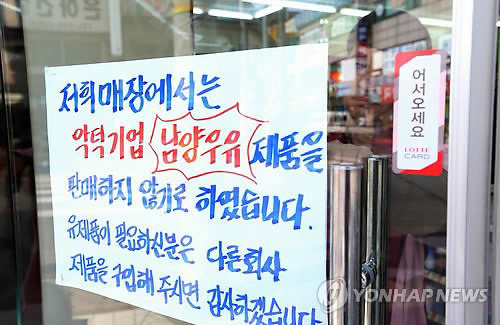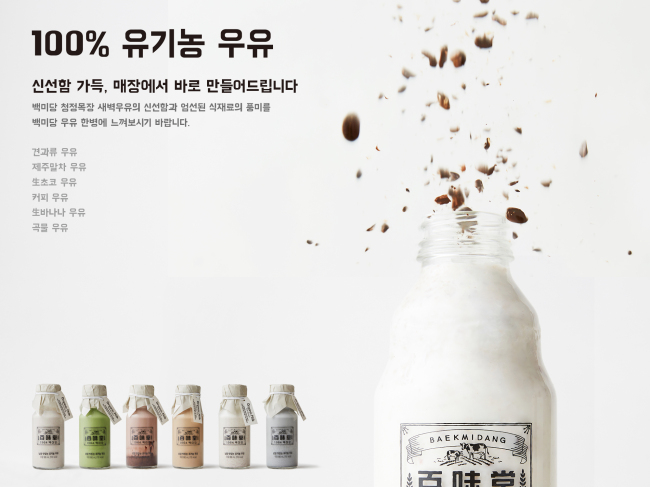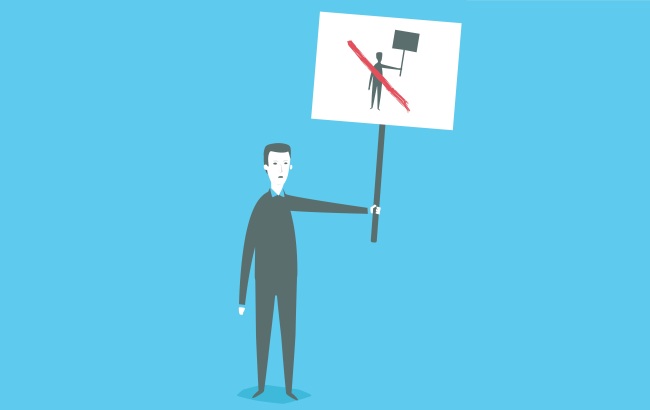[Feature] Putting boycotts to good use
Boycotts are a powerful tool against corporate misdeeds, experts say, but a clear purpose is the key to a strong impact
By Kim Da-solPublished : Aug. 21, 2018 - 18:04
Ask any South Korean and they will be able to tell you about the corporate scandal that left the nation aghast in the summer of 2016, when toxic disinfectants claimed more than 100 lives.
In 2010, Oxy -- the Korean subsidiary of Reckitt Benckiser -- had started selling household humidifier disinfectants that included dangerous chemicals such as PHMG. The products were sold without proper warnings, and the public was outraged.
Although Oxy was one of 20 manufacturers implicated in the damage, South Korean consumers channeled their outrage toward the company seen as having sold the greatest proportion of the product group. The result was a nationwide boycott.
According to the Korea Federation for Environmental Movements, 1,500 protesters representing 56 civic groups have taken part in the boycott since 2016. Major convenience store chains like CU, GS25 and 7-Eleven withdrew Oxy products from their shelves.
Boycotts have an impact on a company’s bottom line -- that’s their purpose. Anyone can participate, simply by refusing to buy from or otherwise financially support the offending business.
Oxy said domestic sales had plummeted by 90 percent last year compared with 2015. The company has also lost 80 percent of its workforce, and now only employs about 60 people as of this month. It spent over 200 billion won ($178 million) over the past two years for compensation.
Oxy has been the only company that has provided compensation to the victims, among other companies including Aekyung and SK Chemical that are involved in the scandal.
The company also closed down a production line in Iksan, North Jeolla Province, in September due to a sharp drop in sales.
The boycott began with a humidifier disinfectant, but eventually spread to include other household products, such as cleaning products and the fabric softener.
“The only thing we can do as consumers is stop buying products although they are already very familiar to us,” said 37-year-old Kim Hee-yeon.
A person closely related to the matter told The Korea Herald that the boycott was having a significant impact.
“Korean society has suffered an unprecedented, complex issue of the humidifier sanitizer tragedy,” she said in a statement. “And boycotts have contributed to bringing forward a few responsible parties. Now is the time to digest the lessons learned from this tragedy.”
Impact of other boycotts
In other parts of the world, powerful consumer boycotts have changed companies’ business strategies and policies.
In the US, Apple suffered embarrassment in 2012, when disappointed consumers initiated a boycott upon news of its withdrawal from the American Electronic Product Environmental Assessment Tool (EPEAT), a registry that certifies the environmental credentials of computers. Apple eventually rejoined in response to the pressure.
The beverage manufacturer Coca-Cola is actively conducting sustainability activities and updating its environmental policies after environmentalists accused it of excessive water use.
The boycott -- an intentional act of abstaining from using something, buying something, or dealing with an organization as a form of protest -- goes back to 1880 in Ireland, when a league of oppressed tenants pushed back against their unjust landlords and land agents, demanding better conditions. Charles Cunningham Boycott was one of the land agents who found himself on the receiving end of their ostracism.
Boycotts are usually called for moral, social, political or environmental reasons.
In Korea, the so-called “water rage scandal” dealt a heavy blow to Korean Air’s brand image. The incident involved Cho Hyun-min, the younger daughter of the air carrier’s owner, who threw water on an advertising agency representative while screaming insults. The airline’s image was already tarnished when the owner’s older daughter, Cho Hyun-ah, abused a flight attendant over a dish of nuts in the 2015 “nut rage” incident. A recent online petition to revoke Korean Air’s status as a national carrier garnered 2,100 electronic signatures on the Cheong Wa Dae website.
But often, vocal campaigns such as these have minimal impact or cause only short-term embarrassment to their targets.
On the Brand Stock Top Index, which assesses companies on the basis of stock value (70 percent) and consumer feedback (30 percent), Korean Air topped the airline category until December 2014. After the “nut rage” incident, Korean Air slipped one notch in January 2015 and could not get back to No. 1 for over 13 months. Yet in May 2016, Korean Air reclaimed the top spot from its main rival, Asiana.
Industry insiders say this outcome is unsurprising.
“While there are only two big names in the local full-service airline business, Korean Air has been and will still enjoy a boom in the cargo industry amid increasing demand for overseas travel,” said a reputation management specialist. “It is less likely that Korean Air would lose passengers (over the public relations disasters) because there are not many other options.”
In many cases, companies seek to recover from bad publicity by rebranding themselves.
In 2013, Namyang Dairy became the target of a nationwide boycott after an audio clip went viral, revealing a Namyang employee verbally abusing a distributor. Major convenience store chains C&U, GS25 and 7-Eleven joined in the boycott and refused to carry Namyang products. The company’s milk and coffee sales more than halved.
In 2010, Oxy -- the Korean subsidiary of Reckitt Benckiser -- had started selling household humidifier disinfectants that included dangerous chemicals such as PHMG. The products were sold without proper warnings, and the public was outraged.
Although Oxy was one of 20 manufacturers implicated in the damage, South Korean consumers channeled their outrage toward the company seen as having sold the greatest proportion of the product group. The result was a nationwide boycott.
According to the Korea Federation for Environmental Movements, 1,500 protesters representing 56 civic groups have taken part in the boycott since 2016. Major convenience store chains like CU, GS25 and 7-Eleven withdrew Oxy products from their shelves.
Boycotts have an impact on a company’s bottom line -- that’s their purpose. Anyone can participate, simply by refusing to buy from or otherwise financially support the offending business.
Oxy said domestic sales had plummeted by 90 percent last year compared with 2015. The company has also lost 80 percent of its workforce, and now only employs about 60 people as of this month. It spent over 200 billion won ($178 million) over the past two years for compensation.
Oxy has been the only company that has provided compensation to the victims, among other companies including Aekyung and SK Chemical that are involved in the scandal.
The company also closed down a production line in Iksan, North Jeolla Province, in September due to a sharp drop in sales.
The boycott began with a humidifier disinfectant, but eventually spread to include other household products, such as cleaning products and the fabric softener.
“The only thing we can do as consumers is stop buying products although they are already very familiar to us,” said 37-year-old Kim Hee-yeon.
A person closely related to the matter told The Korea Herald that the boycott was having a significant impact.
“Korean society has suffered an unprecedented, complex issue of the humidifier sanitizer tragedy,” she said in a statement. “And boycotts have contributed to bringing forward a few responsible parties. Now is the time to digest the lessons learned from this tragedy.”
Impact of other boycotts
In other parts of the world, powerful consumer boycotts have changed companies’ business strategies and policies.
In the US, Apple suffered embarrassment in 2012, when disappointed consumers initiated a boycott upon news of its withdrawal from the American Electronic Product Environmental Assessment Tool (EPEAT), a registry that certifies the environmental credentials of computers. Apple eventually rejoined in response to the pressure.
The beverage manufacturer Coca-Cola is actively conducting sustainability activities and updating its environmental policies after environmentalists accused it of excessive water use.
The boycott -- an intentional act of abstaining from using something, buying something, or dealing with an organization as a form of protest -- goes back to 1880 in Ireland, when a league of oppressed tenants pushed back against their unjust landlords and land agents, demanding better conditions. Charles Cunningham Boycott was one of the land agents who found himself on the receiving end of their ostracism.
Boycotts are usually called for moral, social, political or environmental reasons.
In Korea, the so-called “water rage scandal” dealt a heavy blow to Korean Air’s brand image. The incident involved Cho Hyun-min, the younger daughter of the air carrier’s owner, who threw water on an advertising agency representative while screaming insults. The airline’s image was already tarnished when the owner’s older daughter, Cho Hyun-ah, abused a flight attendant over a dish of nuts in the 2015 “nut rage” incident. A recent online petition to revoke Korean Air’s status as a national carrier garnered 2,100 electronic signatures on the Cheong Wa Dae website.
But often, vocal campaigns such as these have minimal impact or cause only short-term embarrassment to their targets.
On the Brand Stock Top Index, which assesses companies on the basis of stock value (70 percent) and consumer feedback (30 percent), Korean Air topped the airline category until December 2014. After the “nut rage” incident, Korean Air slipped one notch in January 2015 and could not get back to No. 1 for over 13 months. Yet in May 2016, Korean Air reclaimed the top spot from its main rival, Asiana.
Industry insiders say this outcome is unsurprising.
“While there are only two big names in the local full-service airline business, Korean Air has been and will still enjoy a boom in the cargo industry amid increasing demand for overseas travel,” said a reputation management specialist. “It is less likely that Korean Air would lose passengers (over the public relations disasters) because there are not many other options.”
In many cases, companies seek to recover from bad publicity by rebranding themselves.
In 2013, Namyang Dairy became the target of a nationwide boycott after an audio clip went viral, revealing a Namyang employee verbally abusing a distributor. Major convenience store chains C&U, GS25 and 7-Eleven joined in the boycott and refused to carry Namyang products. The company’s milk and coffee sales more than halved.

In the second quarter of that year, Namyang recorded 2.6 billion won in operating profits, a drop of about 77 percent compared with the previous year. Its profits turned negative in the third quarter -- the first time that had happened in 20 years.
However, the disgraced company continued to retain its dominant position in powdered milk, commanding about half the market, mainly because powdered milk is considered an inelastic product, meaning consumers are resistant to changing how much they buy.
“The reason why Namyang still retained a significant market share is that the scandal was not directly related to consumers’ health,” said professor Che Mi-kyung, who teaches consumer studies at Inje University. “The boycott of Namyang products was based on consumers’ interest.”
Soon after the scandal broke out, Namyang began rebranding itself with new product lineups -- completely removing its name and logo. Its coffee product Lucas 9, its milk product GT and Baekmidang do not feature the Namyang logo.

“I would not have imagined they were Namyang’s products,” said Park Yong-jin, a 30-something consumer. “It is quite shocking if they really intended to hide the Namyang logo in consideration of the public backlash.”
The company denied it was intentionally hiding its name, saying the new logo featured the number “1964” to mark the year the company was established.
Staying with the purpose
Industry experts say it should be consumers who voluntarily take collective actions to exercise their rights to perform ethical buying. This means a boycott can be a form of consumer activism, or moral purchasing.
“Companies’ controversial behaviors raise ethical questions for progressive consumers,” Kim Ja-hye, head of the Korea National Council of Consumers Organizations, told The Korea Herald. “But it is not so easy to move into action. Starbucks coffee is convenient. Korean Air provides nice service. Paris Baguette is everywhere.
“Given that boycotting is personally inconvenient and that many demonstrations don’t often yield lasting, tangible results, one should ask this question: As a progressive individual, what do you want to gain by choosing to not purchase a certain product?”
Some experts say, however, a large number of consumers still purchase goods despite the manufacturers’ faults, simply because they do not want to waste time and money.
“Boycotting a certain product is not intended for some huge financial gain, while at the same time requiring much effort to avoid the product. If it costs too much to find an alternative product or a substitute, consumers are less likely to join a boycott,” said Yim Ye-ri of the Financial Consumer Agency.
Others say a boycott is a double-edged sword, restricting consumers’ options and impacting the overall market.
“When competition between companies is reduced due to a boycott, it may bring about an unexpected economic impact on consumers. Reduced categories for certain products can lead to reduced business investment and fewer promotions, which can ultimately impact consumers (financially),” said Professor Lee Seong-koo, who teaches consumer studies at Seoul National University.
Boycotts can also have serious trickle-down effects on the employees of the targeted companies -- even though they are not responsible for the executive-level decisions at issue.
Employees of Korean Air’s low-budget affiliate Jin Air, for instance, held demonstrations pleading to maintain their jobs after a series of irregularities involving the owner’s family led the government to contemplate the cancellation of its business license.
More recently, consumer activism has become more diversified, with use of such new terms as “buycott,” or the conscious decision to purchase products that fit with one’s values and principles.

More consumers are also studying companies’ philosophies, manufacturing processes and social responsibility projects before deciding whether to make a purchase.
“Conscious consumerism is no longer a new term for Korean shoppers as well as the markets here,” said an official who has been working in the retail industry for 16 years.
“Why do you think between two ostensibly equal products at a local grocery store, the one with the higher price can become popular? With growing demand for premium products and awareness of ethical buying, consumers know that they can participate in spreading awareness of unethical business practices by purchasing goods.”
By Kim Da-sol (ddd@heraldcorp.com)







![[Graphic News] More Koreans say they plan long-distance trips this year](http://res.heraldm.com/phpwas/restmb_idxmake.php?idx=644&simg=/content/image/2024/04/17/20240417050828_0.gif&u=)
![[KH Explains] Hyundai's full hybrid edge to pay off amid slow transition to pure EVs](http://res.heraldm.com/phpwas/restmb_idxmake.php?idx=644&simg=/content/image/2024/04/18/20240418050645_0.jpg&u=20240419100350)






![[From the Scene] Monks, Buddhists hail return of remains of Buddhas](http://res.heraldm.com/phpwas/restmb_idxmake.php?idx=652&simg=/content/image/2024/04/19/20240419050617_0.jpg&u=20240419175937)

![[KH Explains] Hyundai's full hybrid edge to pay off amid slow transition to pure EVs](http://res.heraldm.com/phpwas/restmb_idxmake.php?idx=652&simg=/content/image/2024/04/18/20240418050645_0.jpg&u=20240419100350)

![[Today’s K-pop] Illit drops debut single remix](http://res.heraldm.com/phpwas/restmb_idxmake.php?idx=642&simg=/content/image/2024/04/19/20240419050612_0.jpg&u=)